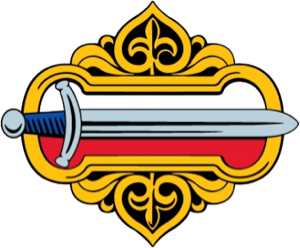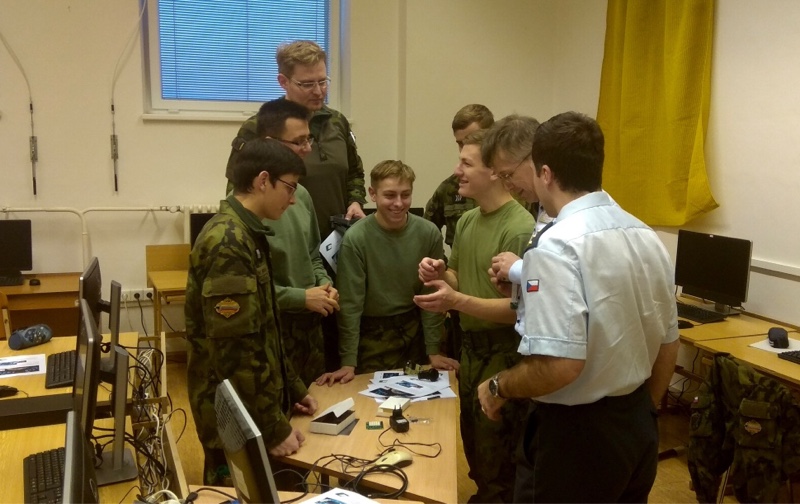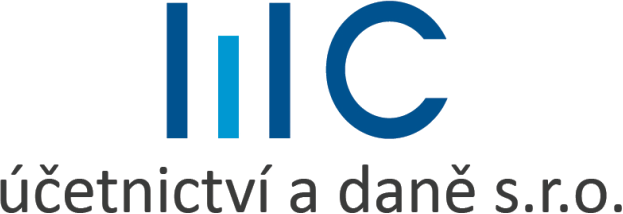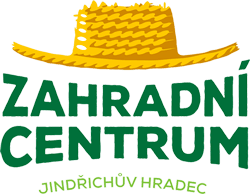Please introduce us to the project you participated in with the students.
It is a European Space Agency's Astro PI project targeting young people under the age of nineteen. It's actually a tender for software written in Python that will run on the International Space Station (ISS) on a Raspberry Pi computer. The computer is equipped with various sensors and a camera that captures the Earth. The use of this hardware had to be invented and programmed. Because we are a military high school, we cooperate with the University of Defense Brno (UNOB). And it was the staff of the Faculty of Military Technology who came to us in the autumn of 2019 with an offer to participate in this project.
Our program ran on April 8, 2020 in space on the ISS. This is a beautiful and big icing on the cake, which is the based on our work and Freelo.
They came to our school, made a presentation for those interested and we took the time to think. I have been running a programming lessons at our school for several years. We use C language and a personal computer. The idea of "switching" the lessons from "C" to Python came up on its own. Every year we start lessons from the beginning with new applicants. So this year we all started from scratch, including me. I didn't know either Python or Raspberry, but I promised to teach them all. It seemed that our "rocket" would explode right on the launch pad.
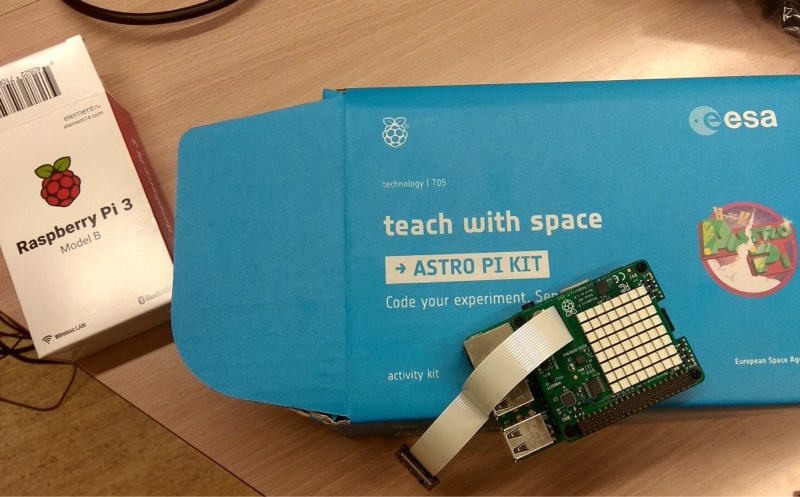
Demo of Raspberry Pi hardware - Astro Pi KIT.
How big is your team and what have you been working on?
According to the propositions, the team can have 2-6 members. In the beginning, there were almost two teams interested and we considered creating them. Over time, however, the number of students has stabilized at six, and we would rather form one larger team than two small ones.
Our first task was to find a topic. In this phase, the staff from the Faculty of Development helped us a lot. UNOB technology under the leadership of Lt. Col. Radim Bloudíček, who was the supervisor of the entire project. They explain the issue and gave us our possibilities. They have been our advisors all along (and in fact they still are, because in May 2020 the project is not finished yet).
Distance learning divided students very quickly. For the hardworking and the sloppy - those who are looking for a solution to the problem and who are looking for excuses.
In the end, we decided to use a accelerometer and a magnetometer, two sensors that expand the capabilities of the Raspberry minicomputer. Our application captures and records the current position of the ISS and displays it on the LED matrix display. The application will run for 180 minutes, and when finished, the data will be sent to Earth for further processing. One result will be to determine the deviation of the actual ISS trajectory from the ideal.
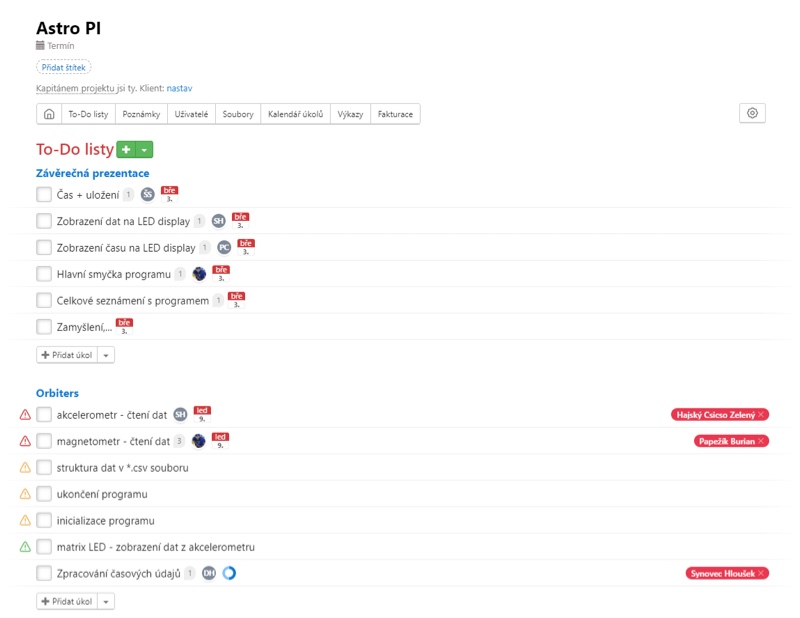
The Astro PI project in Freelo.
What success have you achieved? What are you most proud of?
I consider the creation of my own application to be the greatest success. It should be noted that in October 2019, none of us knew anything about Python, and the team members didn't even know anything about programming. And in February 2020, essentially after four months, they submitted a functional application.
We had to start literally from scratch. They learned things like loops, conditions, saving data to a file and much more, which is a matter of course for anyone who has already programmed something. Immediately after mastering the basic syntax, we began working on the app.
The deadline was February 2020, so we worked "two shifts" the whole January to make it. I consider the commitment and interest that the project was able to arouse in them to be the greatest success.
The fact that April 8, 2020 our program ran in space, on the ISS, is a beautiful big icing on the cake, which is the basis of our work.
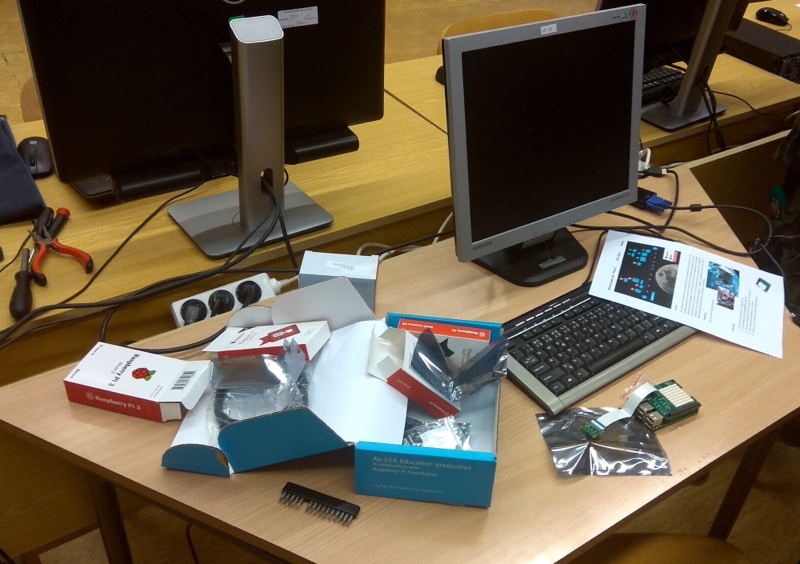
Astro PI in development.
What did you expect from using Freelo in the project? What was the reality?
Our application was divided into separate parts and each was processed by one group. The boys somehow naturally split into three pairs, and each always worked on one task.
I also use Freelo for my personal projects, and when I was planning the work of our team, I thought of using it. I thought I'd try to lead a team of developers and guys would try teamwork through online collaboration tool.
Operation with Freelo wasn't a problem, they did it very quickly. I think Freelo did, but we, as its users, failed. I see a mistake in the absence of rules on how Freelo will be used, what, who and where will be written. I should have done that right at the beginning. But I myself had no concrete idea of how it should go. Everything was quite hectic and everything was solved immediately and in person on the spot. Outside the time and space of the circle, no work was done and there was no need to have a communication base. We just needed a "warehouse" of notes that everyone could go to.
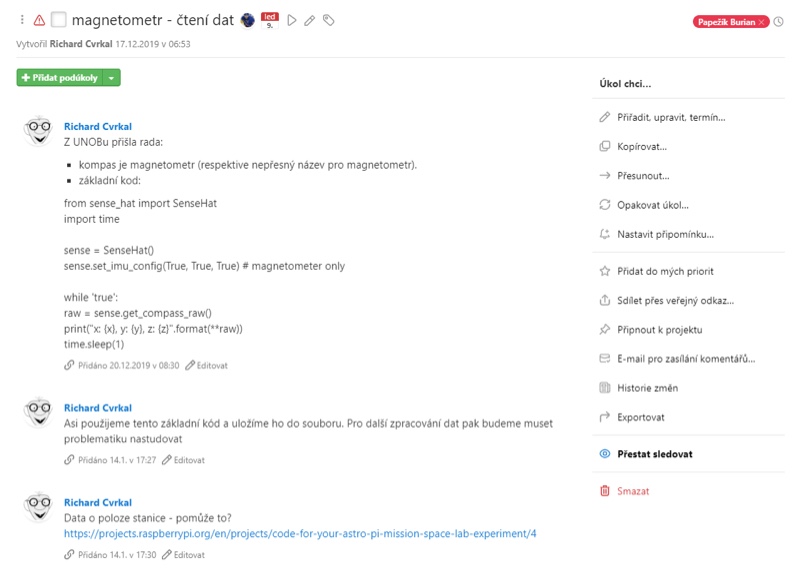
Demonstration of a task in Freelo.
How did Freelo help you the most when working on the project?
We created individual tasks and assigned them to groups. We had an overview of who is responsible for what. We didn't get to the full use of Freelo.
Thanks to Freelo, the students saw and understood that every big (and perhaps seemingly unsolvable) task can be divided into several smaller ones and even smaller ones, and these can be solved.
On the contrary, what didn't work and what problems did you experience during the project?
There was no "staff culture" set up, there was no complete overview of who has what to do and what he still has to finish. If he did not come to the lesson, no one could continue on his task that day.
How did you manage to embark the students to Freelo? Did they live with it quickly?
It was completely hassle-free and fast. Students in general can do a lot if they want to. If they do not want… 🙂
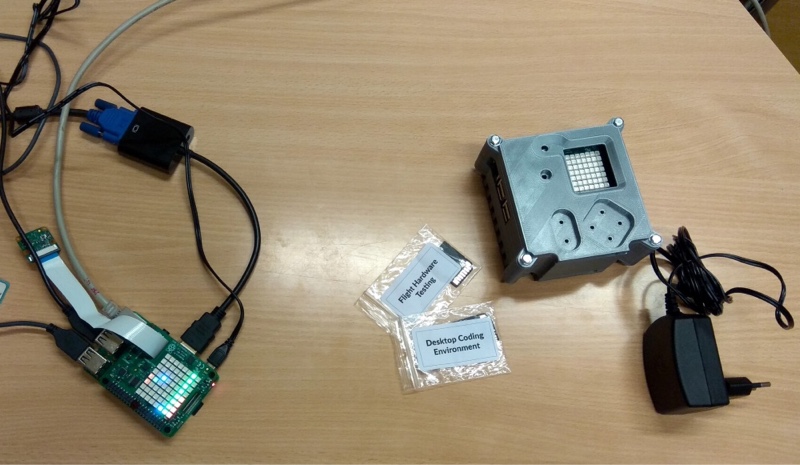
The final Astro PI product also with codes on SD cards.
What do you see as the main benefit of using Freelo on your project? What did the students learn as a result?
Thanks to Freelo, students have seen and understood that every big (and perhaps seemingly unsolvable) task can be divided into several smaller ones and even smaller ones, and these can already be solved . Freelo, as a tool, made this understanding easier for them, and only sometime in their lives will they begin to discuss big tasks, perhaps remember where they learned it. 🙂
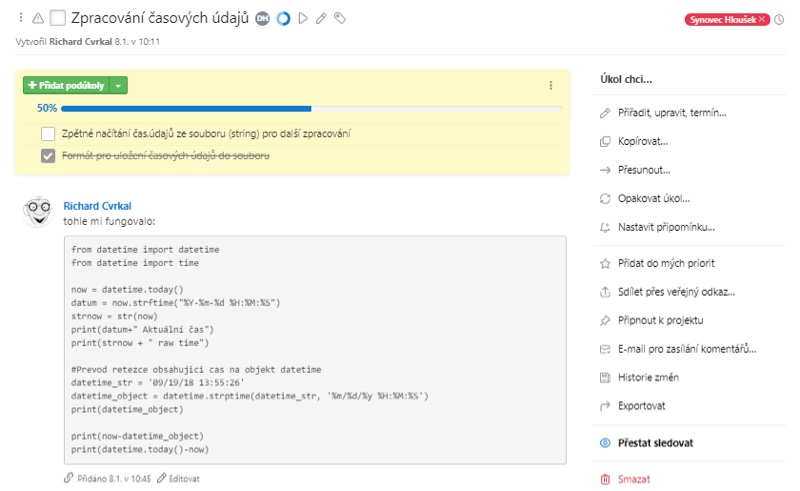
Demonstration of a task in Freelo.
How does your school work during distance learning? How do you communicate with students and what tools do you use?
Distance learning came quickly and unexpectedly. The first information went to the students through the Bachelors and Moodle was also widely used. I mostly solved questions by e-mail, and if anyone wanted, we used Skype. Communication with students varied according to teachers.
One positive thing about the current situation is: The planned implementation of Office 365 for teachers and students has been significantly accelerated. We could all start using them, at least in part, during distance learning. Our IT administrator had a few night shifts. 🙂
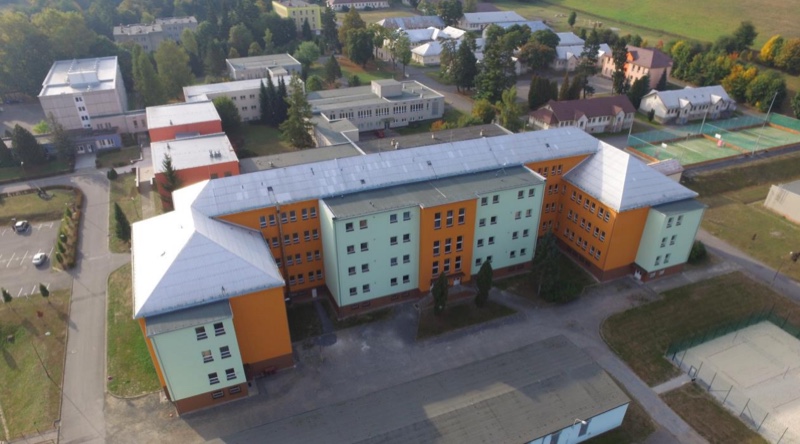
Military Secondary School and Higher Vocational School of the Ministry of Defense in Moravská Třebová.
What has the current situation taught you?
I don't know if it learned, but I gained two insights:
- Home office is for people with self-discipline and a strong will.
- Distance learning divided students very quickly. Hardworking and sloppy - for those looking for a solution to a problem and looking for excuses.
I am very curious how what we are currently experiencing will be reflected in the thinking and plans, whether of individuals or organizations.

